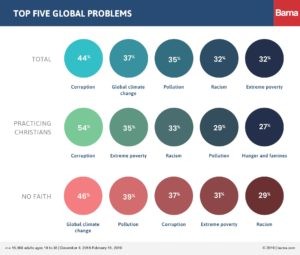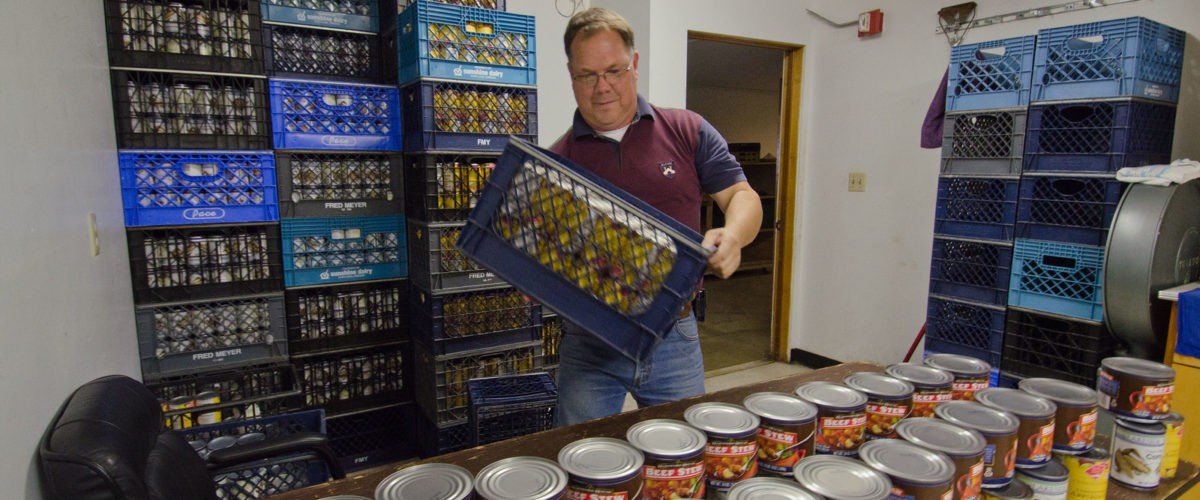Globally, young adult Christians are concerned primarily with corruption, extreme poverty and racism, according to recent research by Barna.
Those of no faith, the Christian research group found, identified global climate change, pollution and then corruption as top concerns.
But as with any statistical survey, few things are black and white when it comes to the attitudes of any generation or religious group.

Matt Hickman
“I tend to think more like people with no faith on these particular issues,” said Matt Hickman, a 29-year-old law school and seminary graduate who lives in Brunswick, Georgia.
“My top concern is global climate change,” said Hickman, an ordained minister who attends First Baptist Church in St. Simons Island, Georgia.
“For me, global climate change has a biblical foundation,” he said.
Hickman added he was initially shocked to see Barna’s findings that corruption was named the top issue by 54 percent of Christian adults ages 18 to 35.
Then he recalled a trip he took to Eastern Europe once where the tour bus he was riding was repeatedly stopped by authorities.
“The police were demanding payments for us to continue,” he said.
Barna’s survey, “18-35-Year-Olds Rate the Church’s Reputation for Justice,” shows a wide range of opinions on the importance of different social justice issues.
For Christians, corruption was followed by extreme poverty at 35 percent, racism at 33 percent, pollution at 29 percent and hunger and famine at 27 percent.
After global climate change and pollution (at 46 and 39 percent), 37 percent of people of no faith identified corruption as their main concern compared to extreme poverty, at 31 percent, and racism at 29 percent.

Tying it together for many believers is the notion that faith and church have important roles in addressing such matters.
Researchers said “the data show a pervasive sense of humanitarian responsibility across many segments in this study, and the Church can foster these passions.”
Barna added that “one in four young adults says caring for the poor is one of their goals for the next 10 years, and opportunities to fight injustice are among the top things religious respondents say they want more of in their worship community.”

Morgan Baker
The connection between justice issues, faith and church are clear to Morgan Baker, 24, who worships at University Baptist Church in Hattiesburg, Mississippi.
“I believe God takes justice seriously, and so should we,” he said.
Baker said he agrees the issues identified in the survey are important, but added his focus is on how to practice his faith in relation to others.
It’s also important to him that his church be active in addressing matters of social justice. He said it’s why he’s involved at UBC.
“We are called to be open handed and loving,” he said.
Hickman said his concerns about global climate change have led him to use less plastic and cut back on driving. Giving to charitable causes is motivated by his concern for poverty.
Racism is also of key importance.
“The Kingdom of Heaven is a diverse and inclusive space, so the more diversity you have here, the more you mirror the Kingdom of Heaven,” Hickman said.


